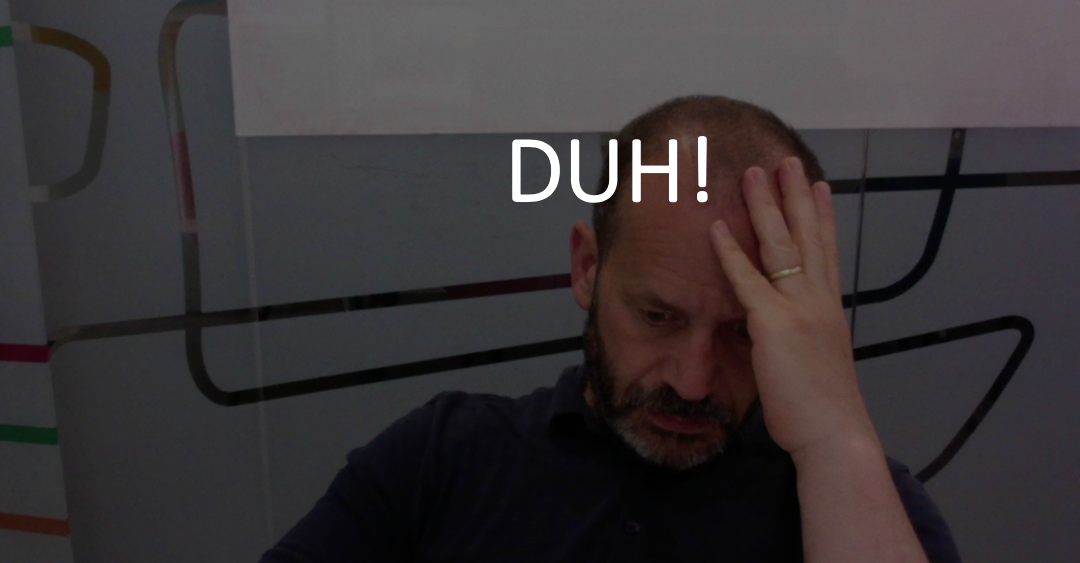An “expert” is a man who has made all the mistakes which can be made, in a narrow field.
This quote from Niels Bohr (Nobel prize for physics in 1922) suggests a central role for mistakes in scientific discovery.
Still, publicly sharing mistakes is kind of taboo (unless they’re someone else’s or long after the fact): when blogging our stories everything had better be shiny and perfect!
“I found it tiring after a while”, confessed a fellow business founder in the conversation that sparked this article.
There are plenty of good reasons not to dwell too much on one’s failures in public: few people like to focus on the warts, clients may get scared but perhaps the most relevant blocker is utility rather than fear: when did children ever heeded to their parents’ mistakes to inform their own life choices?
We all want to make our own mistakes and this is how we learn.
This “utility perspective” makes me feel better about choosing to broadcast mainly positive points that others may draw inspiration from.
Equally, it may be useful to reflect on mistakes in more generic terms. Drawing from my own experience, I see three broad categories: human error, systemic failure, omission.
Human Error
Most of the small, random mistakes that occur in day-to-day business are down to human error. To mitigate their impact and turn them into something we can learn from, there are two complementary routes:
- business relationships – with stakeholders and employees alike – founded on earned trust and good communication/teamwork. These are easy to describe but difficult to achieve and always in need of continuous improvement;
- a good incident and problem-management process: in my world, ITIL is the prevalent framework. Applied with discipline, it will help focus on identifying root causes and solve problems rather than constantly fight fires.
Systemic Failure
I place, under this umbrella, the insidious cracks that often lie dormant for a while, sometimes for a long time, before exploding with significant consequences.
Here the responsibility is squarely with Management and the company culture they foster, in particular around Risk Management.
The way to mitigate the risks of process failure is to doubt everything and more, including ourselves – cue external certification, penetration testing by third parties, internal and external audits.
Omission
Technically more of a sin than a mistake… Trying to stay on top of what we do, we can be oblivious as to what we don’t do.
Challenges and possible solutions, here, will be different for every person and context.
A true desire to understand client needs, to step back and look at the bigger picture, to seek the advice of peers can help us see that something which was previously invisible. Something that could make the difference between succeeding and failing in our business.
Grazed knees and high chins
A “perfect”, risk-less business is a dead business.
Business is busy creation, exploration, re-invention. Mistakes, when small and progressive rather than systemic, are the companions of action and welcome teachers to wannabe experts.
We need to choose employees, partners, clients and suppliers who recognise the importance of continuous improvement as the foundation for success.
With them, we should not be afraid to disclose, discuss and eradicate the causes for the many mistakes that, collectively, we will make during the journey.
…And when it comes to sharing our business stories to a broader audience, we don’t have to beat ourselves up for using the privacy curtain.
Onwards and upwards, with grazed knees and high chins!

